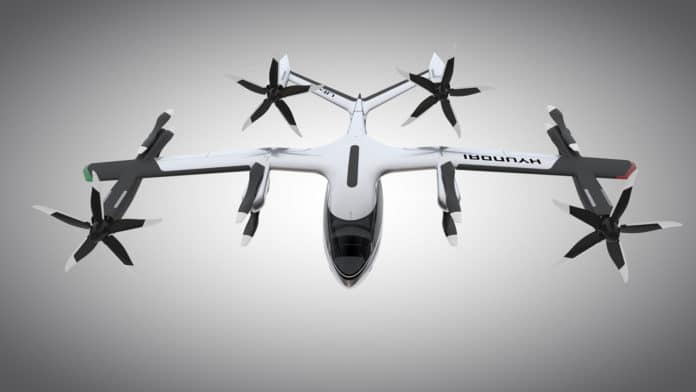Hyundai has announced a new company, called Supernal, to take its future mobility vision forward. The establishment of the subsidiary is related to Hyundai’s increased involvement in the Urban Air Mobility division, with which the group would like to advance its vision of future mobility in urban areas.
An evolution of its Urban Air Mobility Division, the Supernal plans to develop a family of electric air vehicles. The first commercial flight is scheduled to take place in 2028. In the following years, operations will begin on a larger scale, as the AAM market and public acceptance begin to grow in the 2030s, Hyundai announced. The new company was presented as the Group’s Urban Air Mobility division at CES 2020, where it introduced its initial concept vehicle, the S-A1 electric flying taxi.
According to its parent company, Supernal will initially continue to further develop and improve the S-A1 model and plans to begin certification with U.S. regulatory agencies in 2024. Supernal’s first air vehicle will be electric-powered and autonomous-capable and is planned to accommodate four to five passengers on initial urban and urban-adjacent routes. Further details on the VTOL are not given in the current announcement from Hyundai.
The company is working to integrate AAM into existing transit networks and to shape a seamless intermodal passenger experience. The vision is for passengers to use a single app – like current rideshare platforms – to plan their journey, which could include taking a car or rail from home to an AAM “vertiport,” an eVTOL across town, and an e-scooter for the last mile.
“We’re developing a commercially viable Advanced Air Mobility product from the start, designing and manufacturing our vehicle to the highest safety, noise, efficiency, and affordability standards,” said Ben Diachun, Chief Technology Officer, Supernal. “Our growing team, which includes veterans of aerospace, automotive, and other deep-tech industries, is engineering sustainable vehicles that have the potential to evolve how we live, work, and play.”
Supernal is leveraging advanced technologies, systems, and airframe materials – including artificial intelligence, autonomous control, and electric powertrain – to develop its vehicles and will harness the group’s mass production capabilities to scale production affordably. The company is also establishing a bench of academic partners to expand the AAM industry’s research frontier and talent pipeline.
With this in mind, Supernal forges parallel partnerships at the local and state levels in the United States. Last year, for example, the company launched a partnership with the city of Los Angeles and Urban Movement Labs to develop a roadmap that other cities and communities can use to inform their AAM efforts and timelines, Hyundai said.
Also, since 2020 there has been a cooperation with the company Urban-Air Port, which was selected by the British government as the winner of the Future Flight Challenge, in order to research a new, multifunctional, and scalable AAM infrastructure. Against this background, Supernal plans to present a prototype of its take-off and landing infrastructure (“Vertiport”) in the U.K. in its original size in the coming year.
